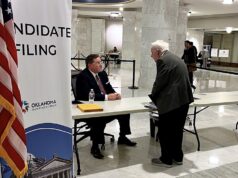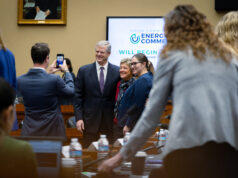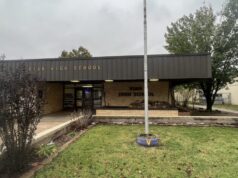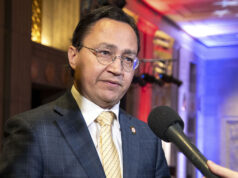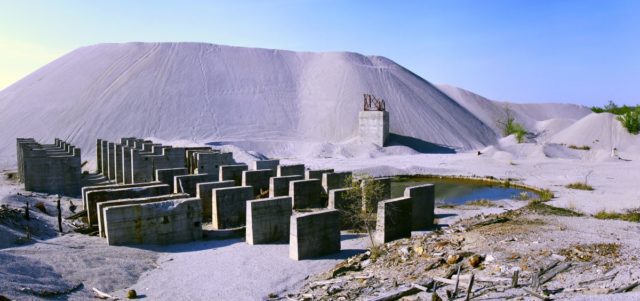

WASHINGTON — Members of the Quapaw Tribe of Oklahoma are awaiting action on legislation that would authorize $137.5 million in payments to conclude a 17-year dispute over the federal government’s mismanagement of tribal assets.
Each of the tribe’s 5,290 citizens could potentially receive a lump-sum payment of $25,990 as settlement for damage done to Quapaw lands from lead and zinc mining that started in the late 1800s.
“We’ve been in contact with individuals in the Department of Justice and Department of Interior. Even they have expressed the desire to pursue this route,” Quapaw Secretary-Treasurer Guy Barker said. “Our delegates in Congress, both Senate and House, echo that sentiment. Hopefully, that will expedite the entire process.”
H.R. 4715, known as the “Bear Settlement” among the Quapaw people, was sponsored by U.S. Rep. Markwayne Mullin (R-OK2) and filed on July 27. It is currently with the House Natural Resources Committee
This story was reported by Gaylord News, a Washington reporting project of the Gaylord College of Journalism and Mass Communication at the University of Oklahoma.
The bill would authorize appropriating $137.5 million to pay the tribe for damage done to Tar Creek, an area of approximately 40 square miles in northeast Oklahoma, which includes Picher, Cardin, Hockerville, Quapaw, North Miami and Commerce.
“Tribes know best what their people need and Native Americans have always been good stewards of our natural resources and land,” Mullin said.
Long-term health impacts
The Quapaw Tribe is headquartered in Ottawa County, having been forcibly moved to Oklahoma from the Mississippi Valley in 1834.
In the late 1800s, lead and zinc were discovered on Quapaw lands in Tar Creek and Picher. There was a rush to mine and lease the lands, and towns developed around the mining industry.
Nearly half of all lead and zinc used in World War I were produced in the area. At the peak of production, in 1926, Ottawa County was the largest source of lead and zinc in the world.
After World War II, mining ceased, but people in the area still suffered long-term health impacts from contamination caused by mining. Barker said more than 300 million tons of material contaminated with lead, zinc and cadmium remain on the surface of the mines.
“The government stepped in, exploited the ownership of that land and then left this apocalyptic landscape for them to farm, which they cannot,” Barker said. “This is the generational wealth they’re left with.”
The area was declared a Superfund site in 1983. In 2015, the Environmental Protection Agency reported that cleanup efforts had reduced blood lead levels of Ottawa County children from 35 percent above the reference level set by the CDC to 3.7 percent.
Quapaw Chairman Joseph Byrd said the loss of human life resulting from these mining activities often goes undiscussed. He said the damage done can be seen in Quapaw ceremonial grounds and family cemeteries.
“You notice that a lot of those individuals didn’t live a very long life during that time, and it’s something that’s continued into the present day. It’s something that is a reminder every time we go back home,” Byrd said.
A long legal battle
The tribe initially sued for an accounting of the U.S. government’s mismanagement of tribal and tribal member trust assets in 2002. For almost two decades, the matter was caught up in complicated litigation before a final financial settlement was reached in late 2019.
The settlement included $59 million to go to the nation and citizens with specific claims, and $137.5 million for all the tribe’s living citizens. The $137.5 would need to be appropriated by Congress before distribution, which is what H.R. 4715 aims to achieve.
The bill still has a long road to travel before funds are dispersed. It will need to pass both houses of Congress, then the U.S. Treasury Department will need to allocate the funds to the Department of Interior for disbursement to Quapaw citizens.
Barker expressed hope that the money will be distributed within two years, but said that decision will be up to Congress.
Quapaw Chairman Joseph Byrd said his inspiration to continue the long legal battle has come from his people.
“It is something that has been able to unify the tribe,” Byrd said, “making sure that we get this money and bring it home to Quapaw.”










